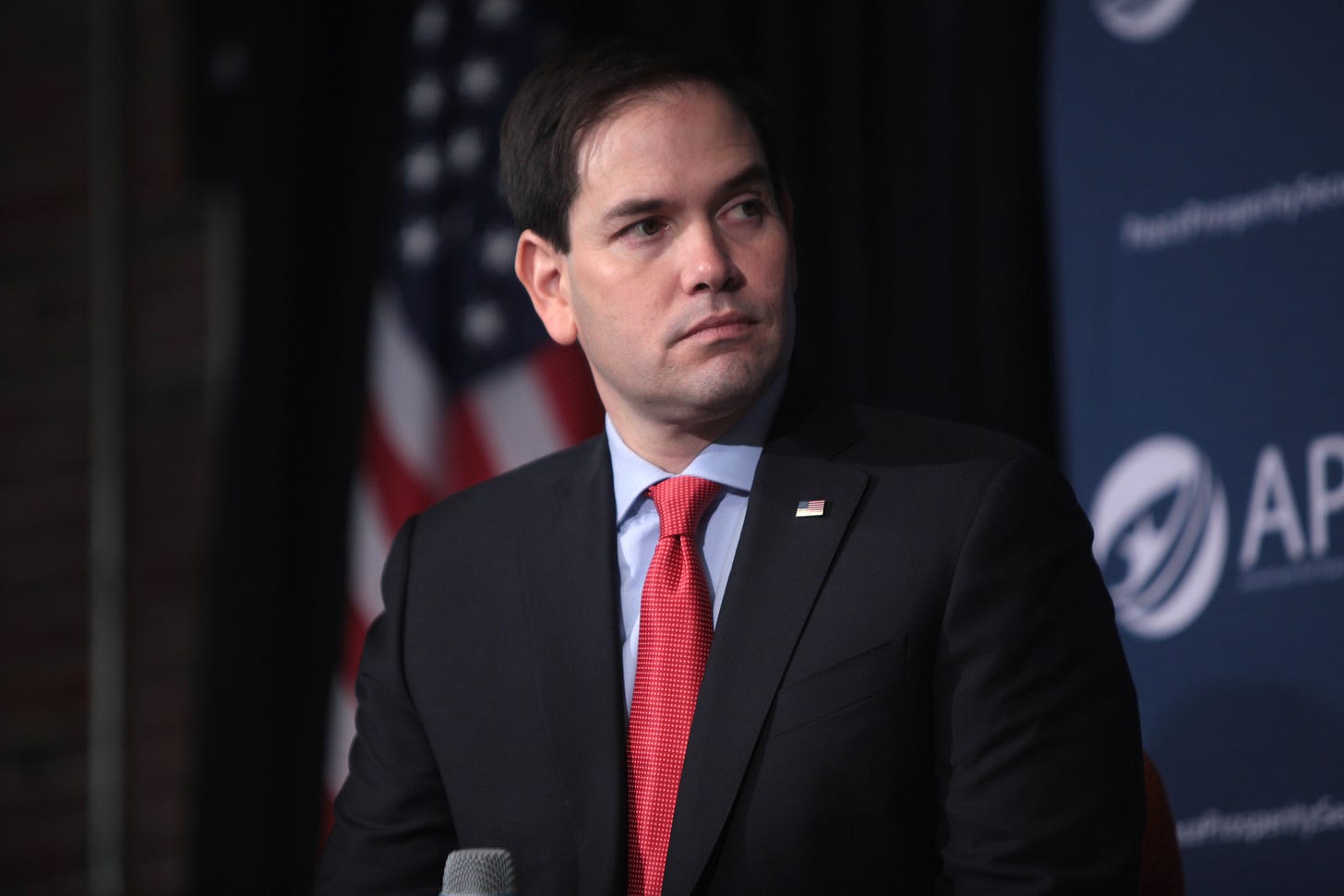Rubio Signals Federal Push Against Muslim Civil Rights Group
Secretary of State Suggests CAIR Terror Designation Over Palestine Advocacy
Last week in Washington, U.S. Secretary of State Marco Rubio indicated that the State Department is actively pursuing moves to designate the Council on American-Islamic Relations (CAIR) and other pro-Palestine groups as terrorist organizations, according to comments Rubio made during a radio interview on Sid & Friends In the Morning. Rubio's remarks, which referenced ongoing internal reviews and the need for thorough legal documentation, have sparked outrage and widespread concern among American Muslim leaders, legal experts, and advocacy organizations, as reported by Mondoweiss and multiple national outlets.
"Your response, whether intentional or not, appeared to raise the possibility that the State Department is trying to find a way to weaponize federal terrorism laws against CAIR and other American Muslim institutions based on a debunked conspiracy theory," wrote Lena Masri, CAIR’s General Counsel and National Litigation Director, in a pointed letter to Secretary Rubio.
What Rubio Said, And Why It Matters
During the August 12 interview, Rubio was questioned about whether the administration would designate CAIR and the Muslim Brotherhood as terrorist organizations. He confirmed, "All of that is in the works," and elaborated that such designations require extensive legal review to withstand court challenges, citing the complexity and volume of recent federal lawsuits involving Palestine advocacy groups.
Rubio explained the process: "We have to go through this process internally where you have to do the review, you have to document and justify what it is. You can know something is what it is, but you still have to go through it so that when someone comes back … they're willing to do these nationwide injunctions and try to run the country from the bench. So we've got to be so careful".
Palestine Advocacy in the Crosshairs
CAIR responded with a public rebuke, arguing that the attacks against the organization are rooted not in objective security concerns, but in CAIR's support for Palestinian rights and its consistent critique of U.S. policy in Gaza. Masri wrote, "To these groups, whose top priority is protecting the Israeli government from criticism, any American Muslims who recognize that Palestinians are human beings worthy of freedom are a threat who must be smeared and silenced".
CAIR also emphasized its legal and operational independence: "CAIR has never been a member, chapter, offshoot, or affiliate of any foreign organization." The group routinely condemns violence and extremism, as highlighted by its opposition to ISIS and other terrorist organizations—a stance so public that ISIS once listed CAIR staff as targets.
"Disagreement is not the basis for public smears, much less legal action," CAIR wrote in its letter to Rubio.
Political Pressure and Legal Battles
Rubio's statements come amid a wave of legal and political scrutiny targeting American organizations that advocate for Palestine. Recent years have seen lawsuits accusing campus groups of supporting or abetting terrorism, including a federal judge’s dismissal of claims against Students for Justice in Palestine for "disseminating Hamas’s propaganda," ruling that no material support or planning occurred in the U.S..
Legislation such as the Muslim Brotherhood Terrorist Designation Act of 2025, introduced by Senator Ted Cruz, seeks a similar classification for various Muslim organizations. Legal experts caution that designating CAIR as a terrorist group would face robust judicial review and a near-certain constitutional challenge.
Civil rights groups like the Muslim Public Affairs Council (MPAC) warn: "Such rhetoric is not only reckless—it undermines the credibility of legitimate counterterrorism efforts, endangers communities through guilt-by-association, and fuels anti-Muslim bigotry while platforming Islamophobia in the highest levels of government".
Islamophobia Surges
The controversy unfolds at a time when anti-Muslim discrimination and Islamophobia are at an all-time high in the United States. CAIR’s 2025 Civil Rights Report documented 8,658 complaints of anti-Muslim and anti-Arab incidents in 2024—a 7.4% jump over the previous year. Most complaints were related to workplace discrimination (15.4%), followed by immigration and asylum (14.8%), education (9.8%), and hate crimes (7.5%).
Analysts link the spike to the Israel-Gaza war, arguing that “vigorous public debate” on Palestine is increasingly met with official crackdowns, viewpoint discrimination, and targeted harassment of activists and students. Over 3,000 people were arrested on U.S. campuses for peaceful pro-Palestine protests from October 2023 to May 2024, according to the Othering & Belonging Institute at Berkeley.
"Speaking out against Israel’s policies of apartheid, occupation and genocide came with a price," CAIR’s Corey Saylor reported in the latest Civil Rights Report.
Crackdown on Activism
Recent policing of student protesters, surveillance of activists, and arrests—such as that of Jermaiah Yusuf Sawaqed in Boston for pro-Palestine graffiti—highlight the real risks faced by those outspoken on Palestinian rights. Civil rights groups have won legal victories, including a $100,000 settlement after Maryland unlawfully suppressed student speech in support of Palestine.
Religious institutions are also responding: the United Methodist Church recently divested from Israel bonds, signaling new directions on faith and advocacy.



